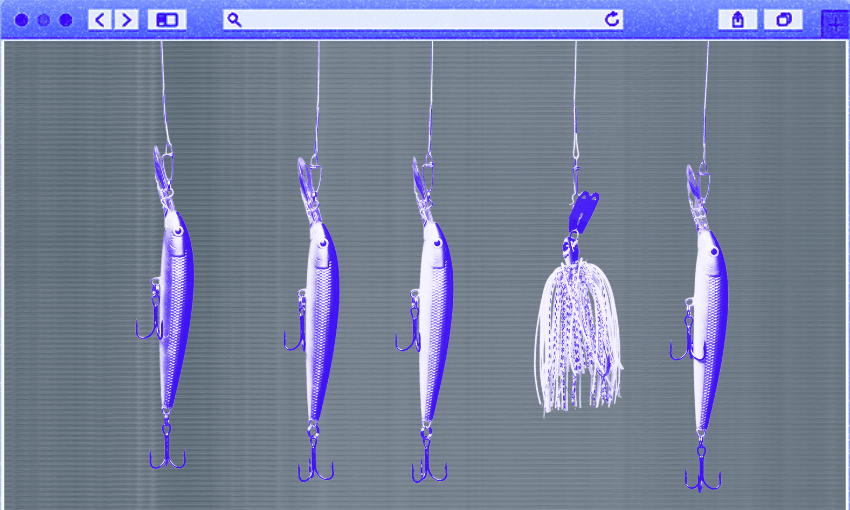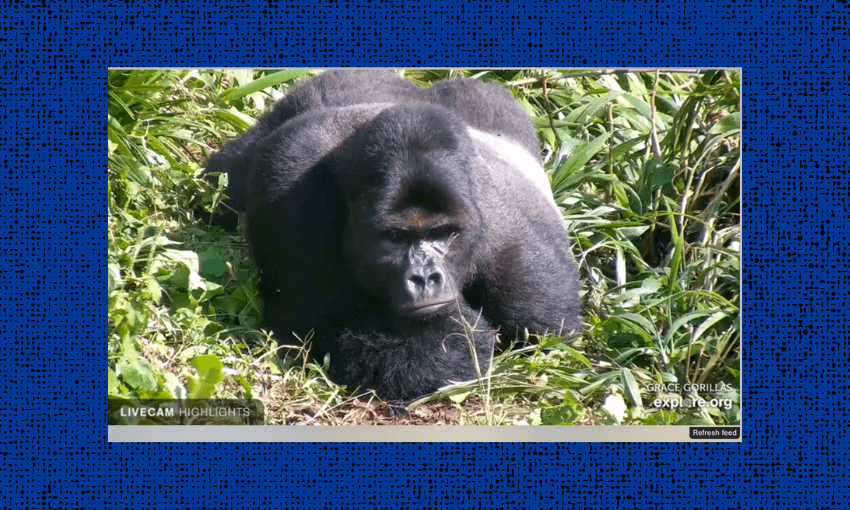Some quick thoughts on bait, not getting it, and the new online divide.
This article was first published on Madeleine Holden’s self-titled Substack.
I am to internet culture what a recently released prisoner is to the outside world. The prisoner in this analogy did three years inside.
From the late 2000s until 2022, I was a heavy user of social media, especially Twitter in the 2010s. My finger was on the pulse of online culture; I “got it”; I was even something of a mover and shaker. I quit it all in April 2022, pregnant and eager to avoid brain-rot motherhood. My Twitter, Instagram and Facebook lay fallow for three disciplined, grass-touching years. In 2025, I returned to promote the godforsaken newsletter in which this piece first appeared.
It’s difficult for a free man to notice how the outside world shifts in the space of three years, but for the recently released prisoner, the change is like a slap in the face. Here’s what’s slapping my face online lately: the bait.
I’m sure you’re familiar with “engagement bait” and “rage bait” and their proliferation online, but you may not be acutely attuned to how they’ve morphed in three short years. When I quit social media in April 2022, X was Twitter and still had some ability to shape important conversations; Instagram and Facebook were usable, if boring; and ChatGPT wasn’t in the hands of the everyman. Online was bad because of the “attention economy”, not because of “slop”.
Bursting back on the scene in the slop era is an insane experience. The website formerly known as Twitter has gone dark in every sense of the term, from the user interface to the bleak affective experience of using it. We are all served some slightly different mess from the bucket, of course, so here’s what my trough looks like on X: fandom minutiae concerning celebrities I’ve never once cared about, Tesla ads, aspirational before-and-after photos of gender transitions (I’m not trans), explainer videos about pressing topics like whether Rumi Carter is autistic, and softcore porn. All of this comes from accounts I don’t follow, which dominate my feed and – this is a new one – notifications.
So far so tedious, but this is not really what I mean by bait. This is all sincere and straightforward, lowest-common-denominator entertainment: naked bodies, celebrity gossip and the now familiar capital-D Discourse. The bait I’m talking about fucks with you more, is post-post-ironic, requires intense online savvy to parse, and involves an element of deception.
Here’s an example:
Here’s what’s happening in this post if you take it at face value: a woman has shared a picture of a random man’s bedroom while he’s on the toilet, the implication being that she’s back at his place to hook up after a date. She’s scanning his room for red and green flags and inviting her X following to join her, and everyone does: Tao Lin on the bookshelf, get out; unframed Malcolm X poster, cringe; Bar Italia, 🔥🔥🔥; natural deodorant, debatable.
If you think this is an invasion of privacy, if you think this says something concerning about gen Z’s dating ethics or the gender wars or something, [BUZZER NOISE] you don’t get it. The woman who posted this picture is in a relationship with the guy whose bedroom it is, and he’s in on the joke. “you should get off your phone and stop invading the mans privacy you freak bitch”, one user responded, echoing my initial gut feeling exactly, to which the boyfriend replied, “Hey it’s a joke and it’s my gf and my room.”
Here’s one more example then I’ll get to the point:
Here’s what’s happening in this post if you take it at face value: two young women are filming themselves shopping at a discount store when a dowdy weirdo grabs their phone and starts lecturing them incoherently about objectification and commodity fetishism. Was the dowdy weirdo in the wrong? Did she have a point? [BUZZER NOISE] you idiot, you absolute idiot, it’s all fake, everything online is fake.
A lot of people got off the internet around the same time I did. You will have seen the thousands of “Here’s why I’m quitting Twitter” or “My year without social media” stories. (I wrote one.) Many of us were millennials, and that made sense: we were the guinea pigs for each social media experiment so our brains rotted first. Now we’re collectively grappling with how to salvage them. We have to: we’re in our 30s and 40s, forming families and realising four-plus daily hours of Instagram is incompatible with raising well-adjusted kids or any other mature endeavour.
But since we announced our grass-touching sabbaticals in the early 2020s, a lot of us have slunk back online and found it not quite the same as we left it; back in the mix with people who never logged off. Savvy, cynical, permanently online people. People who don’t care whether content is staged or “real”. People who can’t be lured into Chicken Licken panics by well-hidden bait. People who feel (or will admit to feeling) only amusement or indifference to the things they see online. People who can digest slop.
It’s tempting to frame this as an old/young or millennial/gen Z divide, and that’s part of it, but it’s really a question of temperament: can you tell when someone’s trying to get a rise out of you? Can you tolerate or even enjoy the sloppified internet, or does it make you lose your mind? Does the breakdown of truth and meaning have you rocking in a corner or hollering out the sunroof? Who do you think needs to get a grip: shitposters and engagement farmers, or the people who take them seriously?
Every lifestyle journalist worth their salt knows these binaries need names, and I think it’s important to caricature and insult both camps, so I’m going with “Lickens” versus “Pigs”. Lickens take things at face value; fall for bait and feel betrayed by it; believe in the value of truth and meaning; and kinda do honestly believe the internet is making the sky fall. Pigs take nothing online seriously; gobble down their slop with resigned indifference; step around bait the same way you avoid dogshit on the footpath; and never log off.
This article was first published on Madeleine Holden’s self-titled Substack. You can support her writing by signing up as a free or paid subscriber.
Tag yourself, as we used to say back when my finger was nearer the pulse. Or test yourself: do you care who owns TikTok? Does the orange test annoy or concern you? Do you think Adolescence should be shown in schools? Do you feel comfortable taking a sincere stand on a moral or political issue using your real name online? Yes = Licken. No = Pig.
The whole internet seems to be siloing off along these temperamental lines. You cannot survive X today without a Pig disposition. Substack is a haven for Lickens. I’ve never been on Bluesky or TikTok and I never will, but they seem Licken and Pig respectively. All traditional news media is Licken. 4Chan was peak Pig; Tumblr peak Licken.
Allow me to don my tinfoil hat and prophesise wildly. Lickens and Pigs are going to become mutually incomprehensible enemies. Global politics will fracture even more deeply, not along gender or class lines but according to the Licken/Pig divide. There’ll be Pig states and Licken states. Licken MPs will pass urgent legislation to counter whatever Pig rark-up is doing the rounds online. Shitposting Pigs will be rounded up and thrown into vans. Shady businessmen and corrupt politicians will have their schemes exposed by journalists; all they’ll need to do to get Pigs onside is say they committed to the bit. All of this will be [cash register noise] for social media companies, our real and eternal rulers.
This will all be very bad, or maybe very good. Crazed Lickens might be pushed to the brink and usher in an anti-tech revolution. Or maybe the cool cynicism of the Pigs will teach everyone a valuable lesson: the internet was never real. The joke was on anyone who thought it was.


